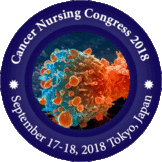
Siva Sanker Reddy
Santhiram College of Pharmacy, India
Title: Lead molecules from chalcones as anti breast cancer agents
Biography
Biography: Siva Sanker Reddy
Abstract
Cancers figure among the leading causes of morbidity and mortality worldwide, with approximately 14 million new cases and 8.2 million cancer-related deaths in 2012. The number of new cases is expected to rise by about 70% over the next 2 decades. Half of all men and one-third of all women may develop some form of cancer during their lifetime. Among men, the 5 most common sites of cancer diagnosed in 2012 were lung, prostate, colorectum, stomach, and liver cancer. Among women, the 5 most common sites diagnosed were breast, colorectum, lung, cervix, and stomach cancer. Breast cancer is the most common female cancer. According to the American cancer society’s report, about 12% of women in the U.S. may develop some invasive breast cancer during their lifetime. However breast cancer treatment has a complicated process and complication in case of chemotherapy resistance, surgery, and available anti-tumor medication side effects make it more difficult to select the appropriate treatment regimen. Consequently, there is great demand to introduce new active compounds with more anticancer activity and less toxicity.
Methodology & Theoretical Orientation: In our laboratory, 20 synthetic molecules were synthesized and in vitro studies against breast cancer using cell lines MCF-7 and MDA-MB-468 were conducted. Three molecules were selected as lead molecules from the in vitro study results. These three molecules have shown nearly equal or equal potency with that of the standard drug Doxorubicin. In silico activity studies were performed and from this, it may be concluded that these molecules are exhibiting anticancer activity by inhibiting enzyme like topoisomerases or DNA gyrases or Tyrrosine kinases etc.
Findings: The selected compounds are structurally similar to those of tyrosine kinase inhibitor class of drugs(Alectinib, Canertinib) which are available in the market. Irreversible inhibitors provide potent and selective inhibition of tyrosine kinase enzymes. Use of such inhibitors has proved promising in overcoming the tumor resistance encountered with reversible tyrosine kinase inhibitors. Dacomitinib (PF-00299804) is an experimental drug candidate under development by Pfizer for the treatment of non-small-cell lung carcinoma. It is a selective and irreversible inhibitor of EGFR. Irreversible inhibitors4 inactivate their protein target through covalent interaction with a nucleophilic cysteine residue within the nucleotide binding pocket of the kinase domain. The 2-propen-1-one group present in the 3BM, 3GM & 3JM lead molecules can interact with cysteine residue of kinase domain and can be called as irreversible inhibitors of the target.
Mechanism of irreversible tyrosine kinase inhibitors.
Irreversible inhibitors inactivate their protein target through covalent interaction with a nucleophilic cysteine residue within the nucleotide binding pocket of the kinase domain. The 2-propen-1-one which is part of 3BM, 3GM & 3JM lead molecules can interact with cysteine residue of kinase domain and thus can act as irreversible inhibitors of the target.

